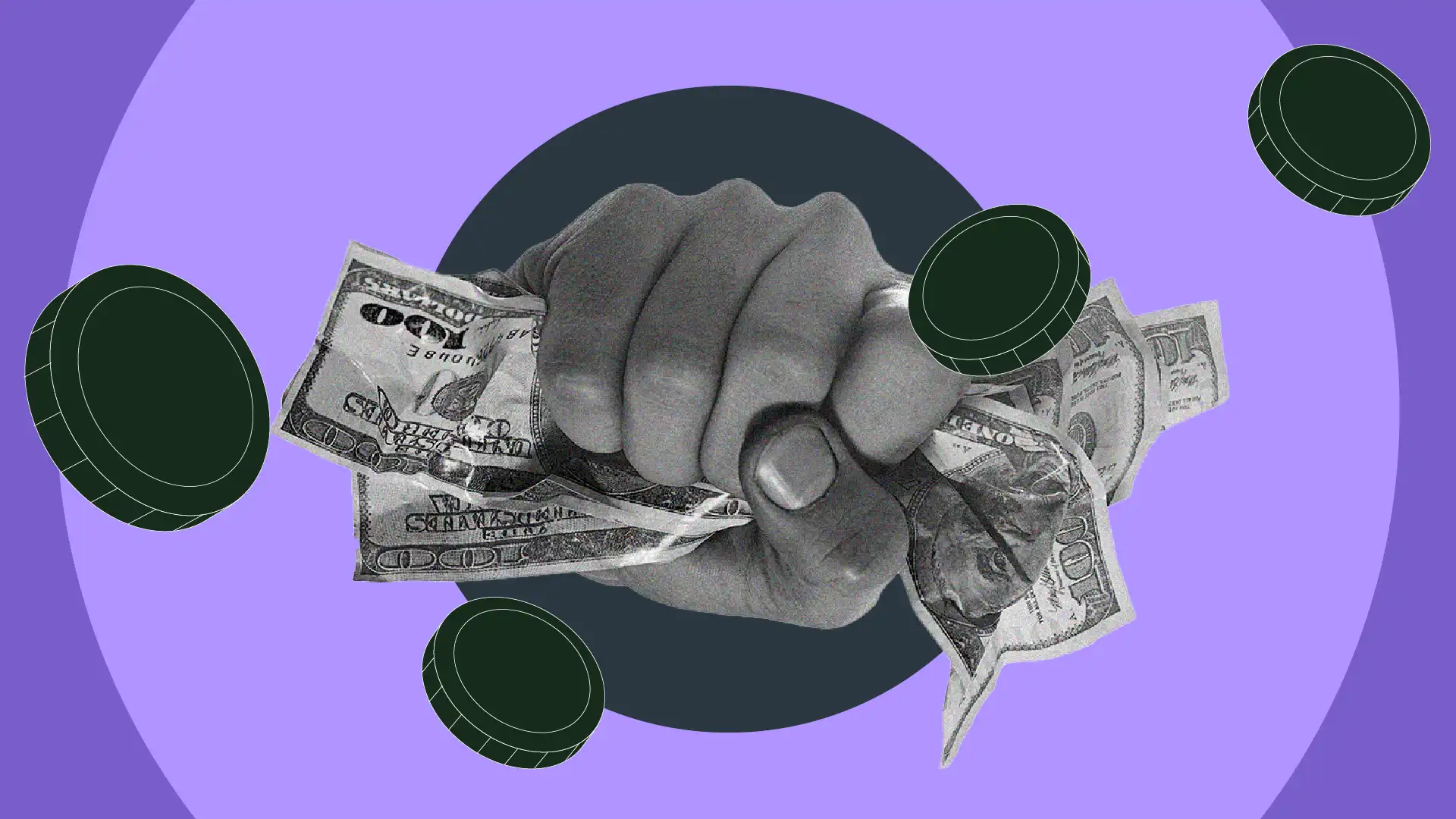- Cryptocurrency market experiences a sharp decline: What’s behind the downturn?
- How to trade and invest in cryptocurrency stocks
- Is the Cryptocurrency XRP a Millionaire Maker?
- ‘X Money’ Leak Reveals Elon Musk’s Game-Changing Plan As Bitcoin Nears $100,000 Price
- Bitcoin drops below $97,000 as Treasury yields pressure risk assets
Key Takeaways
- The FBI, DEA, IRS-CI, HSI, and USMS collaborate to manage and redistribute seized digital assets.
- Blockchain analysis tools and exchange cooperation are vital in tracing and securing illicit crypto.
- Examples like the Bitfinex hack, Operation Destabilize, and Operation Kraken show how jurisdictions manage seized crypto globally.
- New US legislation and global efforts focus on clear guidelines, stricter regulations, and international collaboration to manage confiscated assets.
Cryptocurrency seizures are becoming increasingly common as digital assets dominate criminal investigations. In the US, asset forfeiture laws play a crucial role in confiscated cryptocurrencies’ seizure, management, and disposal.
Bạn đang xem: What Happens to Confiscated Crypto? US Asset Forfeiture Laws
These measures aim to dismantle illicit activities like money laundering by removing unlawfully obtained digital wealth. Still, they raise important questions about ethics, technology, and regulation for law enforcement and the broader crypto community.
Understanding how these laws operate is essential for crypto holders and traders. Seizures can influence market dynamics, impact confidence in digital assets, and set precedents for future regulatory actions.
This article explores the legal framework surrounding confiscated crypto, how it is secured and managed, the auction process and distribution of proceeds, the challenges involved, and key cases that highlight these procedures in practice.
Legal Framework for Seizing Crypto
Federal asset forfeiture laws in the US govern seizing cryptocurrencies linked to illegal activities. These laws fall into two main categories:
- Criminal forfeiture: Law enforcement proves a direct link between cryptocurrency and a crime, requiring a criminal conviction.
- Civil forfeiture: Authorities establish probable cause that the cryptocurrency is connected to illegal activities without a criminal conviction.
Federal Agencies Involved
- Federal Bureau of Investigation (FBI): Investigates and enforces federal laws, including those related to cybercrime, fraud, and money laundering involving cryptocurrencies.
- Drug Enforcement Administration (DEA): Investigates the use of cryptocurrencies in drug-related offenses.
- Internal Revenue Service – Criminal Investigation (IRS-CI): Targets tax evasion and money laundering involving crypto.
- Homeland Security Investigations (HSI): Focuses on cryptocurrency-linked human trafficking and cross-border crimes.
- United States Postal Inspection Service (USPIS): Examines cryptocurrency involvement in mail fraud and related crimes.
These agencies work together to trace and seize cryptocurrencies linked to criminal activities, ensuring they are removed from circulation efficiently.
How Seized Crypto Stays Secure and Accountable
Managing seized cryptocurrencies goes beyond legal compliance. It protects individuals, institutions, and the broader crypto community. The US Marshals Service (USMS) ensures proper handling through robust security measures and transparent practices, directly impacting users and traders.
Strong Security Protects Assets
Securing seized crypto is essential to prevent theft and misuse. Institutions managing these assets must adopt measures like the following:
- Cold storage: Storing cryptocurrencies offline minimizes hacking risks and keeps assets safe.
- Multiple verification steps: Requiring multi-factor authentication (MFA) ensures that only authorized individuals can access funds.
- Regular audits: Regular audits identify vulnerabilities and ensure the integrity of stored assets.
Accountability Builds Trust
Transparent processes give individuals and institutions confidence in the system. Organizations handling seized crypto should:
- Follow documented protocols: Clear procedures ensure fairness from seizure to disposal.
- Disclose management updates: Public reporting on auctions and asset handling builds trust.
- Verify with independent audits: Third-party reviews confirm that seized assets are managed responsibly.
These practices reinforce trust in cryptocurrency management, showing that individuals and institutions benefit from secure and accountable handling of seized assets.
Auctioning Seized Crypto and Allocating Proceeds
Seized cryptocurrencies often find a new purpose through public auctions, transforming confiscated assets into resources for the public good.
These auctions highlight the government’s commitment to transparency and effective asset management.
The Auction Process
The USMS also oversees the auctioning of confiscated cryptocurrencies, ensuring fairness and accountability. Auctions are open to eligible participants, including individuals and institutions, allowing competitive bidding for seized digital assets.
A notable example is the upcoming auction of approximately 69,370 Bitcoins, valued at $4.4 billion, seized from the Silk Road marketplace. Following the Supreme Court’s decision in October 2024 to allow the sale, preparations are underway, but the exact timing remains unconfirmed. This sale follows a Supreme Court decision clearing ownership claims, marking one of the largest cryptocurrency auctions.
Where the Proceeds Go
Proceeds from these auctions serve several key purposes:
- Support for law enforcement: Funds enhance efforts to combat cybercrime, money laundering, and other illegal activities.
- Victim restitution: In financial loss cases, proceeds may compensate affected individuals.
- Public programs: Some funds may support government initiatives, reinforcing their role in serving community interests.
These auctions provide financial resources for critical initiatives and set a precedent for confiscated digital assets reintegrating into the economy.
For the crypto community, such large-scale auctions can influence market dynamics while reinforcing trust in the government’s ability to manage seized assets responsibly.
Cases of Confiscated Crypto
Beyond the well-known Silk Road case, several significant cryptocurrency seizures illustrate the application of asset forfeiture laws:
Bitfinex Hack (2016)
In 2022, the US Department of Justice (DOJ) announced the seizure of approximately 94,000 Bitcoin, valued at over $3.6 billion, linked to the 2016 Bitfinex hack.
- This marked the largest financial seizure in DOJ history. US authorities currently hold the recovered funds.
- As of December 2024, a restitution hearing is scheduled for February 2025 to determine the rightful recipients of the recovered assets.
- The DOJ has expressed uncertainty about considering Bitfinex and its customers as victims under existing restitution laws, which will influence the distribution of the seized cryptocurrency.
Operation Destabilize (2024)
The UK’s National Crime Agency (NCA) led Operation Destabilize, which seized over 25.4 million dollars in cash and cryptocurrency from Russian money laundering networks. The NCA has not publicly disclosed specific details regarding the disposition of the seized cryptocurrencies.
Normally, law enforcement agencies securely hold these assets until legal proceedings finish.
Afterward, the funds follow legal guidelines and may support law enforcement efforts or compensate victims.
Operation Kraken: $9.3 Million in Cryptocurrency Seized
Xem thêm : Outgoing CFTC Chair Rostin Behnam Urges Stronger Cryptocurrency Regulation Before Departure
In Oct. 2024, The Australian Federal Police (AFP) seized $9.3 million in cryptocurrency during Operation Kraken. Officers targeted the alleged leader of Ghost, an encrypted platform used by organized crime groups.
This seizure marks one of the largest cryptocurrency recoveries under Australia’s Proceeds of Crime Act 2002.
After analyzing digital devices from the suspect’s home, AFP investigators decrypted the account’s seed phrase. They transferred the cryptocurrency to secure AFP storage and restrained it under proceeds of crime laws. The AFP will seek to forfeit these funds to the Commonwealth.
What Happens to Seized Assets
The Australian Financial Security Authority will manage the confiscated funds in the Confiscated Assets Account. These resources directly fund:
- Crime prevention programs.
- Community intervention projects.
- Law enforcement efforts nationwide.
Authorities manage and redistribute seized digital assets based on the legal frameworks of their jurisdiction and the specifics of each case.
Outcomes often include funding law enforcement operations, supporting community programs, or compensating victims of crime.
The specific role of US regulations significantly influences global outcomes. As a leader in setting cryptocurrency standards, the US shapes how other jurisdictions manage and redistribute seized digital assets.
Clear legal frameworks, like those established under asset forfeiture laws and evolving legislation, provide a model that impacts international cooperation, enforcement strategies, and market stability worldwide.
Challenges and Considerations in Managing Seized Cryptocurrency
Handling seized cryptocurrencies involves navigating complex processes. Law enforcement faces technological hurdles, ethical debates, and shifting regulations.
Technological Considerations
The digital nature of cryptocurrencies demands advanced tools and cooperation to trace and secure seized assets effectively.
- Blockchain analysis tools: Agencies use specialized software like Chainalysis, TRM Labs, and Elliptic to track illicit transactions and identify the sources and destinations of funds. For example, Chainalysis has linked trillions of dollars worth of cryptocurrency transactions to real-world entities since 2014, providing valuable investigation insights.
- Role of exchanges: Exchanges assist investigations by complying with legal requests to share account information or restrict access to suspicious assets. Platforms like Binance have collaborated with law enforcement to address fraudulent activities involving virtual assets.
Ethical Considerations
Using asset forfeiture laws in cryptocurrency cases raises important questions about fairness and responsibility.
- Potential overreach: Civil forfeiture laws require less evidence than criminal cases, leading to concerns about misuse or disproportionate impacts on individuals and groups.
- Management of holdings: Holding large amounts of cryptocurrency raises issues about law enforcement’s influence on markets and the need for transparent asset management.
Regulatory Developments
Cryptocurrency’s rapid growth drives ongoing updates to regulations. Governments aim to close enforcement gaps while adapting to the changing landscape.
Evolving legal frameworks
New laws focus on improving clarity and addressing the unique challenges of digital assets.
The United States has made significant strides in clarifying the regulatory landscape for digital assets. A key development was the passage of the Financial Innovation and Technology for the 21st Century Act (FIT21) by the US House of Representatives in May 2024.
This bipartisan legislation provides clear guidelines for treating digital assets under US law and delineates responsibilities between the Commodity Futures Trading Commission (CFTC) and the Securities and Exchange Commission (SEC).
Under Donald Trump’s potential presidency, cryptocurrency legislation might take new strides. Trump has previously voiced strong support for Bitcoin (BTC) and other digital assets, positioning the US as a potential leader in the crypto industry.
His proposed policies, such as creating a strategic Bitcoin reserve and streamlining regulations, signal an intent to foster innovation while maintaining oversight. These developments could reshape how digital assets are integrated into the US financial system and influence global regulatory standards.
Proposals for future legislation include stricter exchange regulations and greater international cooperation to tackle cross-border cryptocurrency crimes.
The current challenges highlight the importance of clear procedures, accountability, and balanced policies to handle seized cryptocurrencies effectively and fairly.
Conclusion
Cryptocurrency seizures have become a key tool in fighting crime involving digital assets. US asset forfeiture laws provide a legal foundation for managing these cases, allowing authorities to seize and auction illicitly obtained cryptocurrencies.
Federal agencies such as the FBI, DEA, and IRS-CI are critical in tracing, securing, and redistributing these assets.
Seized cryptocurrencies often undergo auctions, where proceeds are directed to support law enforcement, compensate victims, and fund public initiatives. However, managing these assets involves addressing significant challenges, from technological hurdles like blockchain analysis to ethical concerns about civil forfeiture practices and market impacts.
Cases like the Bitfinex hack, Operation Destabilize in the UK, and Operation Kraken in Australia highlight how different jurisdictions handle confiscated digital assets. The evolving regulatory landscape, including new US legislation and international efforts, seeks to balance innovation with accountability.
Understanding these processes is crucial for the crypto community, as they influence market dynamics, trust in digital assets, and future regulations.
FAQs
How do international agencies collaborate on cross-border cryptocurrency seizures?
Agencies work through agreements and partnerships with international bodies such as the INTERPOL to share information and coordinate enforcement.
What happens if the value of seized cryptocurrencies fluctuates significantly before they are auctioned?
Authorities typically hold the cryptocurrencies until legal proceedings conclude, and the auction reflects the market value at the time of sale, regardless of previous price changes.
How does the government ensure that auctions of seized crypto are not manipulated?
Public auctions are conducted under strict protocols, with eligible participants vetted to prevent collusion or unfair bidding practices.
Can seized cryptocurrencies be used for government projects instead of being auctioned?
In most cases, laws mandate that seized assets be auctioned, with proceeds allocated to approved initiatives rather than the direct use of the cryptocurrencies themselves.
Disclaimer:
Key Takeaways
The FBI, DEA, IRS-CI, HSI, and USMS collaborate to manage and redistribute seized digital assets.
Blockchain analysis tools and exchange cooperation are vital in tracing and securing illicit crypto.
Examples like the Bitfinex hack, Operation Destabilize, and Operation Kraken show how jurisdictions manage seized crypto globally.
New US legislation and global efforts focus on clear guidelines, stricter regulations, and international collaboration to manage confiscated assets.
Cryptocurrency seizures are becoming increasingly common as digital assets dominate criminal investigations. In the US, asset forfeiture laws play a crucial role in confiscated cryptocurrencies’ seizure, management, and disposal.
These measures aim to dismantle illicit activities like money laundering by removing unlawfully obtained digital wealth. Still, they raise important questions about ethics, technology, and regulation for law enforcement and the broader crypto community.
Understanding how these laws operate is essential for crypto holders and traders. Seizures can influence market dynamics, impact confidence in digital assets, and set precedents for future regulatory actions.
This article explores the legal framework surrounding confiscated crypto, how it is secured and managed, the auction process and distribution of proceeds, the challenges involved, and key cases that highlight these procedures in practice.
You May Also Like
Crypto
Are Crypto Bunkers the Future of Digital Asset Protection?
Crypto
Who Is Ross Ulbricht? Understanding the Silk Road Creator’s Story and Trump’s Promise
Trading
Crypto Fear And Greed Index, Explained
Legal Framework for Seizing Crypto
Federal asset forfeiture laws in the US govern seizing cryptocurrencies linked to illegal activities. These laws fall into two main categories:
Criminal forfeiture: Law enforcement proves a direct link between cryptocurrency and a crime, requiring a criminal conviction.
Civil forfeiture: Authorities establish probable cause that the cryptocurrency is connected to illegal activities without a criminal conviction.
Federal Agencies Involved
Federal Bureau of Investigation (FBI): Investigates and enforces federal laws, including those related to cybercrime, fraud, and money laundering involving cryptocurrencies.
Drug Enforcement Administration (DEA): Investigates the use of cryptocurrencies in drug-related offenses.
Internal Revenue Service – Criminal Investigation (IRS-CI): Targets tax evasion and money laundering involving crypto.
Homeland Security Investigations (HSI): Focuses on cryptocurrency-linked human trafficking and cross-border crimes.
United States Postal Inspection Service (USPIS): Examines cryptocurrency involvement in mail fraud and related crimes.
These agencies work together to trace and seize cryptocurrencies linked to criminal activities, ensuring they are removed from circulation efficiently.
How Seized Crypto Stays Secure and Accountable
Managing seized cryptocurrencies goes beyond legal compliance. It protects individuals, institutions, and the broader crypto community. The US Marshals Service (USMS) ensures proper handling through robust security measures and transparent practices, directly impacting users and traders.
Strong Security Protects Assets
Securing seized crypto is essential to prevent theft and misuse. Institutions managing these assets must adopt measures like the following:
Cold storage: Storing cryptocurrencies offline minimizes hacking risks and keeps assets safe.
Multiple verification steps: Requiring multi-factor authentication (MFA) ensures that only authorized individuals can access funds.
Regular audits: Regular audits identify vulnerabilities and ensure the integrity of stored assets.
Accountability Builds Trust
Transparent processes give individuals and institutions confidence in the system. Organizations handling seized crypto should:
Follow documented protocols: Clear procedures ensure fairness from seizure to disposal.
Disclose management updates: Public reporting on auctions and asset handling builds trust.
Verify with independent audits: Third-party reviews confirm that seized assets are managed responsibly.
These practices reinforce trust in cryptocurrency management, showing that individuals and institutions benefit from secure and accountable handling of seized assets.
Auctioning Seized Crypto and Allocating Proceeds
Seized cryptocurrencies often find a new purpose through public auctions, transforming confiscated assets into resources for the public good.
These auctions highlight the government’s commitment to transparency and effective asset management.
The Auction Process
The USMS also oversees the auctioning of confiscated cryptocurrencies, ensuring fairness and accountability. Auctions are open to eligible participants, including individuals and institutions, allowing competitive bidding for seized digital assets.
A notable example is the upcoming auction of approximately 69,370 Bitcoins, valued at $4.4 billion, seized from the Silk Road marketplace. Following the Supreme Court’s decision in October 2024 to allow the sale, preparations are underway, but the exact timing remains unconfirmed. This sale follows a Supreme Court decision clearing ownership claims, marking one of the largest cryptocurrency auctions.
Where the Proceeds Go
Proceeds from these auctions serve several key purposes:
Support for law enforcement: Funds enhance efforts to combat cybercrime, money laundering, and other illegal activities.
Victim restitution: In financial loss cases, proceeds may compensate affected individuals.
Public programs: Some funds may support government initiatives, reinforcing their role in serving community interests.
These auctions provide financial resources for critical initiatives and set a precedent for confiscated digital assets reintegrating into the economy.
For the crypto community, such large-scale auctions can influence market dynamics while reinforcing trust in the government’s ability to manage seized assets responsibly.
Cases of Confiscated Crypto
Beyond the well-known Silk Road case, several significant cryptocurrency seizures illustrate the application of asset forfeiture laws:
Bitfinex Hack (2016)
In 2022, the US Department of Justice (DOJ) announced the seizure of approximately 94,000 Bitcoin, valued at over $3.6 billion, linked to the 2016 Bitfinex hack.
This marked the largest financial seizure in DOJ history. US authorities currently hold the recovered funds.
As of December 2024, a restitution hearing is scheduled for February 2025 to determine the rightful recipients of the recovered assets.
The DOJ has expressed uncertainty about considering Bitfinex and its customers as victims under existing restitution laws, which will influence the distribution of the seized cryptocurrency.
Operation Destabilize (2024)
The UK’s National Crime Agency (NCA) led Operation Destabilize, which seized over 25.4 million dollars in cash and cryptocurrency from Russian money laundering networks. The NCA has not publicly disclosed specific details regarding the disposition of the seized cryptocurrencies.
Normally, law enforcement agencies securely hold these assets until legal proceedings finish.
Afterward, the funds follow legal guidelines and may support law enforcement efforts or compensate victims.
Operation Kraken: $9.3 Million in Cryptocurrency Seized
In Oct. 2024, The Australian Federal Police (AFP) seized $9.3 million in cryptocurrency during Operation Kraken. Officers targeted the alleged leader of Ghost, an encrypted platform used by organized crime groups.
This seizure marks one of the largest cryptocurrency recoveries under Australia’s Proceeds of Crime Act 2002.
After analyzing digital devices from the suspect’s home, AFP investigators decrypted the account’s seed phrase. They transferred the cryptocurrency to secure AFP storage and restrained it under proceeds of crime laws. The AFP will seek to forfeit these funds to the Commonwealth.
What Happens to Seized Assets
The Australian Financial Security Authority will manage the confiscated funds in the Confiscated Assets Account. These resources directly fund:
Crime prevention programs.
Community intervention projects.
Law enforcement efforts nationwide.
Authorities manage and redistribute seized digital assets based on the legal frameworks of their jurisdiction and the specifics of each case.
Outcomes often include funding law enforcement operations, supporting community programs, or compensating victims of crime.
The specific role of US regulations significantly influences global outcomes. As a leader in setting cryptocurrency standards, the US shapes how other jurisdictions manage and redistribute seized digital assets.
Clear legal frameworks, like those established under asset forfeiture laws and evolving legislation, provide a model that impacts international cooperation, enforcement strategies, and market stability worldwide.
Challenges and Considerations in Managing Seized Cryptocurrency
Handling seized cryptocurrencies involves navigating complex processes. Law enforcement faces technological hurdles, ethical debates, and shifting regulations.
Technological Considerations
The digital nature of cryptocurrencies demands advanced tools and cooperation to trace and secure seized assets effectively.
Blockchain analysis tools: Agencies use specialized software like Chainalysis, TRM Labs, and Elliptic to track illicit transactions and identify the sources and destinations of funds. For example, Chainalysis has linked trillions of dollars worth of cryptocurrency transactions to real-world entities since 2014, providing valuable investigation insights.
Role of exchanges: Exchanges assist investigations by complying with legal requests to share account information or restrict access to suspicious assets. Platforms like Binance have collaborated with law enforcement to address fraudulent activities involving virtual assets.
Ethical Considerations
Using asset forfeiture laws in cryptocurrency cases raises important questions about fairness and responsibility.
Potential overreach: Civil forfeiture laws require less evidence than criminal cases, leading to concerns about misuse or disproportionate impacts on individuals and groups.
Management of holdings: Holding large amounts of cryptocurrency raises issues about law enforcement’s influence on markets and the need for transparent asset management.
Regulatory Developments
Cryptocurrency’s rapid growth drives ongoing updates to regulations. Governments aim to close enforcement gaps while adapting to the changing landscape.
Evolving legal frameworks
New laws focus on improving clarity and addressing the unique challenges of digital assets.
The United States has made significant strides in clarifying the regulatory landscape for digital assets. A key development was the passage of the Financial Innovation and Technology for the 21st Century Act (FIT21) by the US House of Representatives in May 2024.
This bipartisan legislation provides clear guidelines for treating digital assets under US law and delineates responsibilities between the Commodity Futures Trading Commission (CFTC) and the Securities and Exchange Commission (SEC).
Under Donald Trump’s potential presidency, cryptocurrency legislation might take new strides. Trump has previously voiced strong support for Bitcoin (BTC) and other digital assets, positioning the US as a potential leader in the crypto industry.
His proposed policies, such as creating a strategic Bitcoin reserve and streamlining regulations, signal an intent to foster innovation while maintaining oversight. These developments could reshape how digital assets are integrated into the US financial system and influence global regulatory standards.
Proposals for future legislation include stricter exchange regulations and greater international cooperation to tackle cross-border cryptocurrency crimes.
The current challenges highlight the importance of clear procedures, accountability, and balanced policies to handle seized cryptocurrencies effectively and fairly.
Conclusion
Cryptocurrency seizures have become a key tool in fighting crime involving digital assets. US asset forfeiture laws provide a legal foundation for managing these cases, allowing authorities to seize and auction illicitly obtained cryptocurrencies.
Federal agencies such as the FBI, DEA, and IRS-CI are critical in tracing, securing, and redistributing these assets.
Seized cryptocurrencies often undergo auctions, where proceeds are directed to support law enforcement, compensate victims, and fund public initiatives. However, managing these assets involves addressing significant challenges, from technological hurdles like blockchain analysis to ethical concerns about civil forfeiture practices and market impacts.
Cases like the Bitfinex hack, Operation Destabilize in the UK, and Operation Kraken in Australia highlight how different jurisdictions handle confiscated digital assets. The evolving regulatory landscape, including new US legislation and international efforts, seeks to balance innovation with accountability.
Understanding these processes is crucial for the crypto community, as they influence market dynamics, trust in digital assets, and future regulations.
FAQs
Can individuals recover seized cryptocurrencies if they can prove ownership?
Individuals can claim ownership of seized crypto by proving the assets are not connected to illegal activities. Courts determine the outcome during legal proceedings.
How do international agencies collaborate on cross-border cryptocurrency seizures?
Agencies work through agreements and partnerships with international bodies such as the INTERPOL to share information and coordinate enforcement.
What happens if the value of seized cryptocurrencies fluctuates significantly before they are auctioned?
Authorities typically hold the cryptocurrencies until legal proceedings conclude, and the auction reflects the market value at the time of sale, regardless of previous price changes.
How does the government ensure that auctions of seized crypto are not manipulated?
Public auctions are conducted under strict protocols, with eligible participants vetted to prevent collusion or unfair bidding practices.
Can seized cryptocurrencies be used for government projects instead of being auctioned?
In most cases, laws mandate that seized assets be auctioned, with proceeds allocated to approved initiatives rather than the direct use of the cryptocurrencies themselves.
Was this Article helpful?
Nguồn: https://gapinsurance.click
Danh mục: News




